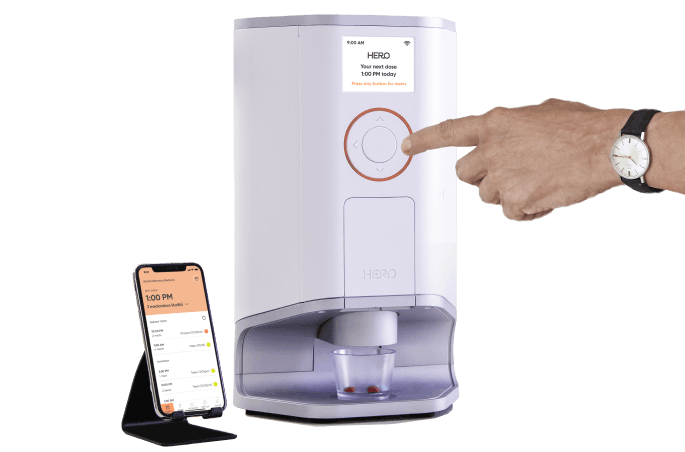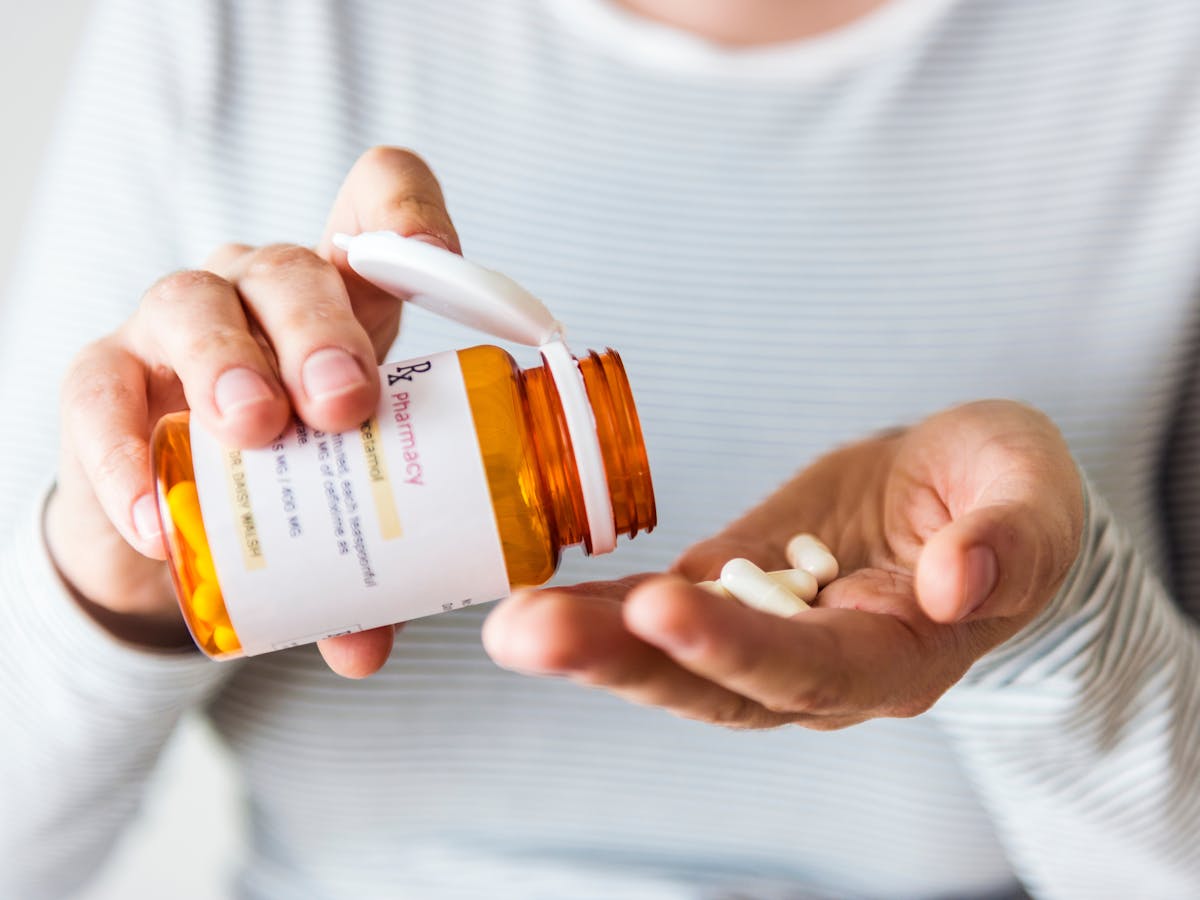The Myth of the Medicine Cabinet: Crucial Do's and Don'ts for Storing Pills and Managing Your Medicine Box

Unravel the truth about safe pill storage. Learn why the medicine cabinet may not be the best place to store medicines, and discover helpful tips for storing pills safely in our comprehensive guide. Keep your family safe and your medication potent with the right storage habits.
In the landscape of healthcare, storing medication has become an important concern, especially as more people turn to both prescription and over-the-counter drugs for their healthcare needs. A well-organized pill box, pill case, pill organizer, or a more advanced electronic medication dispensing device may help you to improve the organization and compliance to your medication regimen. Let's debunk the myth of the medicine cabinet and understand the do's and don'ts of safe medicine storage.
Pill Organizer vs. Medicine Box: Exploring Safe Pill Storage Options
Considering more than 80 percent of Americans take at least one medication, everyone should know how to safely store their meds [1]. Keeping meds in a safe place may help to protect curious children and pets. Plus, proper storage is a useful way to preserve medication effectiveness and potency. After all, medications, vitamins, and supplements exist to assist with keeping us healthy—and storing them safely helps them do just that.
Proper Ways to Store Medication: A Room-by-Room Assessment
Not sure where to start? Browse the rooms in your home and take note of where your medications are. Then read these crucial dos and don’ts for storing pills and make adjustments where necessary. Read carefully—some of the tips may surprise you.
Complex med schedule? We solved it.
Hero’s smart dispenser reminds you to take your meds and dispenses the right dose, at the right time.

Store Medications: Away from Extreme Temperatures and Humidity
❌DON’T Store medication in the medicine cabinet or the bathroom cabinet. Although it is named as if it is ideal for storing meds, a medicine cabinet is actually among the worst options. Why? Excessive heat, humidity, and temperature changes that occur in most bathrooms can damage medications, which may decrease their effectiveness. Hence, bathrooms and their medicine cabinets are not the places where medications should be stored.
✔️ DO Store medication in the kitchen or bedroom, away from heat and humidity. This is why many Hero users keep their devices in these rooms. Bedrooms or kitchens are ideal environments for storing medications because they’re usually dry and cool.
Store Medicine: Respect Expiration Dates
❌ DON’T Keep your medication past its expiration date. Expiration dates exist for a reason. The chemical composition of medications can change over time. Expired medication may be less effective—and it can even be risky or harmful for your health.
✔️ DO Safely dispose of your medication when it’s expired. Start by reading the label to see if the manufacturer has provided specific disposal instructions. Otherwise, the best way to safely dispose of expired or unused medication is to drop it off at a local drug take back site. If none exist near you, you may be able to either flush them or toss them out in the garbage. The FDA provides instructions for which disposal method is best for each type of medication [2] [3].
Medicine Safety: Keeping Medicines Away from Children
❌ DON’T Leave medications where children can easily access them. Don’t keep medications, vitamins, or supplements within sight or reach of children. If your child can see or access medications in drawers or on countertops, then it’s time to move them to a safer location. With Hero, medications are secure and concealed.
✔️ DO store medication high and out of reach from children. Put medicines “up and away” after each use. Always relock safety caps, and never leave medicines unattended at a sick child’s bedside. Be sure every household member, babysitter, and guest knows to place medication out of sight while they’re in your home. With Hero, you can avoid this issue altogether. Every Hero user has the option of setting a 4-digit password to keep medicine secure.
Medicine Storage: The Right Way to Travel With Medications
❌ DON’T put medication in checked baggage when traveling. Leaving medications in checked luggage runs the risk of having them lost or stolen while on the go. Additionally, your luggage is exposed to extreme temperature shifts while in the cargo hold, which can potentially degrade the medication’s effectiveness.
✔️ DO carry medication in its original container and in your carry on luggage when traveling. Keep your medications close by while traveling. As long as your medications are labeled and in their original containers, you likely won’t have a problem with pre-flight screenings. If you have additional questions about storing medications during a flight, call your airline beforehand.
In Summary: Smart Medicine Storage Matters
Proper medication storage only takes a few minutes of careful planning. Following these dos and don’ts can help you to keep your family safe and to preserve the life of your medications.
Incorporating these safe storage practices for medications has the potential to positively impact your overall health and wellbeing, and prevent any unforeseen medication-related incidents. This highlights the importance of medication safety in daily life. Knowledge is power, and in this case, it is the power to help you manage life and health in the most effective way. As always, it is important and necessary to consult your pharmacist or doctor if you have any specific questions about your prescribed meds.
Storing Medications with Hero: A Smart Solution for Medication Management
- Efficient Storage: Say goodbye to traditional pill organizers and hello to Hero. This smart dispenser can store up to a 90-day supply of 10 different medications, making it a great option for those who need to keep meds in a more organized and efficient manner.
- Smart Dispensing: When it's time to take your medicine, Hero alerts you. With the press of a button, your dose is dispensed. This eliminates the need to carry multiple original bottles of medications or rummage through a kitchen cabinet or dresser drawer for the right pill.
- Medication Management App: The Hero app allows you to set your medication schedule and receive real-time reminders. If you miss a dose, the app sends notifications, helping you to stay on track with medication regimen.
- Versatility: Hero supports most pill sizes and shapes. However, it's important to note that it does not work with half-pills, gummies, powdery, sticky, or dissolvable pills. For these types of medications, consult with your pharmacist or doctor for alternative storage solutions.
- Remote Caregiver Controls: If you're caring for a loved one, you can check for alerts and missed dose reminders through the mobile app and can reach out to them if you have questions or are concerned about a potential missed dose.
- Not Suitable for All Medications: While Hero is a versatile tool, it's not suitable for storing medications that require refrigeration or are in liquid form. Similarly, medications like chewable or dissolvable pills, soft gel caps, and sticky pills should be stored outside of the Hero device to prevent them from sticking together or disintegrating.
Remember, always consult with your pharmacist or doctor for any specific questions or concerns about storing your medications.
Sources:
[1] https://www.cdc.gov/medicationsafety/basics.html
[3] https://www.fda.gov/drugs/safe-disposal-medicines/disposal-unused-medicines-what-you-should-know
The contents of the above article are for informational and educational purposes only. The article is not intended to be a substitute for professional medical advice, diagnosis, or treatment. Always seek the advice of your physician or other qualified clinician with any questions you may have regarding a medical condition or its treatment and do not disregard professional medical advice or delay seeking it because of information published by us. Hero is indicated for medication dispensing for general use and not for patients with any specific disease or condition. Any reference to specific conditions are for informational purposes only and are not indications for use of the device.








